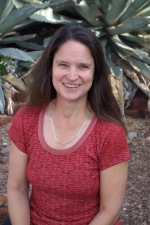
Dr. Butler's research website - Temporal Interpersonal Emotion Systems (TIES)
All of the real challenges facing us, both as individuals and as societies, are highly complex – if they were simple they wouldn’t be challenging! I believe that critical thinking, creative theory, careful empirical observation and social collaboration are the primary tools we have to tackle this complexity and to better the world. In my research, I employ dynamic systems theory and methods to investigate phenomena at the interface of emotions, self-regulation, relationships, teamwork and wellbeing. As director of the Temporal Interpersonal Emotion Systems (TIES) research group, I facilitate collaborative efforts to advance the scientific study of relational and emotional factors influencing physical, psychological and social well-being. My teaching focuses on graduate level statistics and modeling interpersonal systems.
Areas of Expertise
- Interpersonal emotional systems
- Mathematical modeling of emotion dynamics
- Biopsychosocial artificial intelligence
- Biopsychosocial approaches to health (including obesity, immune function, cancer survival, and autonomic functioning in family contexts)
- Cultural influences on all of the above
- Developing Bayesian generative modeling approaches for all of the above (see our webpage at www.compties.org)
Research Focus
I investigate emotional, self-regulatory and relationship mechanisms that contribute to physical, mental and social wellbeing. To guide this research I think in terms of interpersonal emotion systems, which involve the dynamic interaction of emotion components (subjective experience, expressive behavior, physiology, cognition) within and between partners over time in social interactions, close relationships and teams.
To study interpersonal emotion systems, I take a collaborative, cross-disciplinary approach and focus on multi-method data, including laboratory based manipulations, in-depth qualitative interviews and daily diaries collected from couples, families or teams. The data from my studies includes self- and partner-reports (structured questionnaires, open-ended interviews), behavioral observations rated from videotapes, physiological indices and cognitive measures. All measures are taken repeatedly over time-periods ranging from a few minutes to several years.
To make meaning out of such data, I take two apprpoaches: 1) I use traditional statistical models that are appropriate for investigating complex systems evolving over time (e.g., multilevel modeling, differential equations, time-series networks), and 2) I collaborate with researchers in machine learning and artificial intelligence.
My current research includes studies of:
• changes in emotional dynamics and physiological linkage in romantic couples going through couple's therapy
• developing a socio-emotionally intelligent artificial agent to help human teams perform better
• emotional coherence (e.g., within-person correlations of emotional experience, expression and physiology) and wellbeing
• computational approaches for modeling temporal interpersonal emotion systems (CompTIES, www.compties.org)
• cultural influences on emotions and close relationships
• physiological correlates of emotion and emotion regulation.
Wellbeing is a complex dynamic state. Although many of the factors influencing wellbeing are beyond the individual’s control (e.g. global economics, genetics), emotions and relationships are potentially malleable. It is for this reason that I target socio-emotional processes contributing to well-being. If we can better understand these processes we will be able to speak to the question, “What can individuals do to promote the wellbeing of themselves, their families and their work-groups, despite challenging life circumstances?” Answers to this question are central to developing successful behavioral health and performance interventions.
Current Projects
Current Projects
- Co-I, ToMCAT: Theory of Mind-based Coaching Agent for Teams. Funded by DARPA.
- UA-PI; Targeting interpersonal emotion dynamics as a mechanism for increasing wellbeing in romantic couples. Funded by the Israel-US Binational Science Foundation.
- UA-PI: Response system coherence in emotion: Its nature and implications for wellbeing. Funded by the National Science Foundation.
Recent Projects
- PI, Relationships, Emotion and Eating: A Dynamic Systems Investigation of Weight Gain. Funded by the National Institutes of Health.
- PI, Surviving Breast Cancer: The Dynamics of Inflammation, Emotion, and Family. Funded by the American Cancer Society.
- PI, Computational Temporal Interpersonal Emotional Systems (Comp-TIES). In collaboration with Kobus Barnard, University of Arizona. Funded by the National Science Foundation. See our webpage at www.compties.org
Subjects Taught
- Introduction to Statistical Inference (graduate)
- Multilevel Modeling (graduate)
- Dyadic Data Analysis (Bivariate Systems)
Select Publications
See Curriculum Vitae











